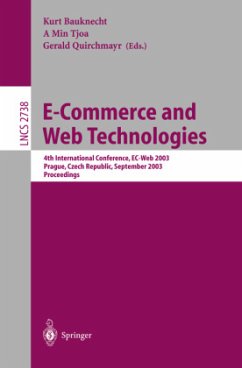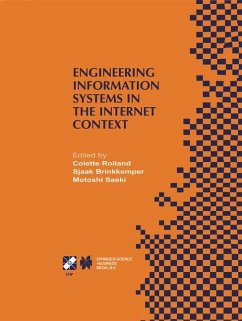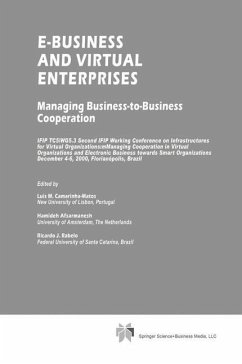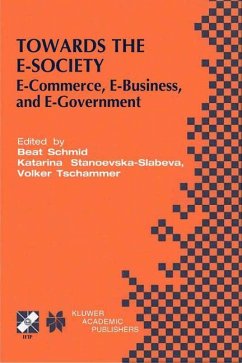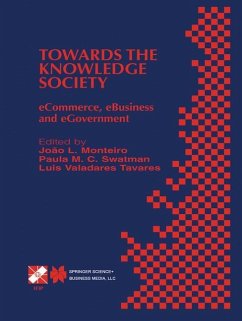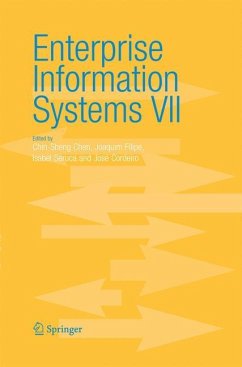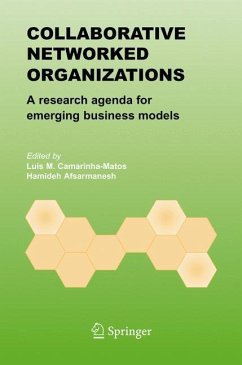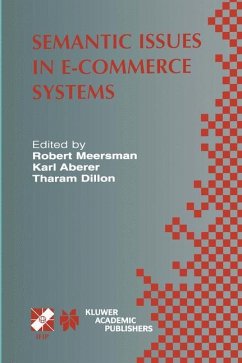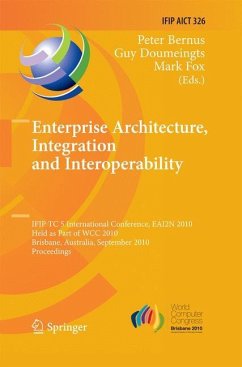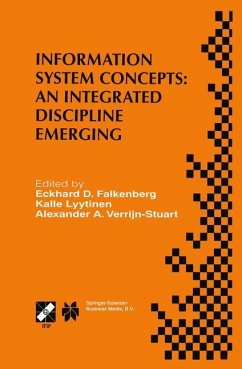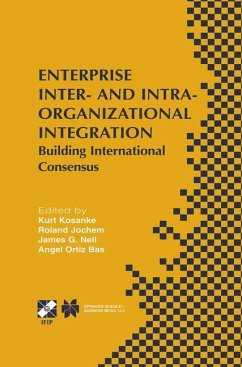
Enterprise Inter- and Intra-Organizational Integration
Building International Consensus
Herausgegeben: Kosanke, Kurt; Jochem, Roland; Nell, James G.; Ortiz Bas, Angel

PAYBACK Punkte
57 °P sammeln!
The international initiative on Enterprise Inter- and Intra-Organisational Integration (EI3-IC) had the objective to increase both international consen sus (IC) and public awareness on enterprise integration. In these proceedings we intend to present the current status in inter- and intra-organisational inte gration for electronic commerce and thereby to further increase awareness and consensus within academia and industry about enterprise inter-and intra organisational integration. The conference proceedings contain the papers presented at the ICEIMT conference in Valencia, Spain, selected pa...
The international initiative on Enterprise Inter- and Intra-Organisational Integration (EI3-IC) had the objective to increase both international consen sus (IC) and public awareness on enterprise integration. In these proceedings we intend to present the current status in inter- and intra-organisational inte gration for electronic commerce and thereby to further increase awareness and consensus within academia and industry about enterprise inter-and intra organisational integration. The conference proceedings contain the papers presented at the ICEIMT conference in Valencia, Spain, selected papers presented at the different workshops and three papers on the initiative itself: overview, history and results. The proceedings follow the conference structure with each section (Parts 2 to 5) starting with the workgroup reports, followed by a particular view on the section theme and additional papers either presented at the con ference or during the related workshop. Section editorials discuss the differ ent contributions. As stated in the paper by Nell and Goranson in section 1 the results from all workshops indicate the important role of business processes in the area of e-commerce and virtual enterprises. Sharing relevant knowledge between co operating partners and making it available for decision support at all levels of management and across organisational boundaries will significantly en hance the trust between the partners on the different levels of partner opera tions (strategy, policy, operation and transaction). Clearly business process modelling can significantly enhance establishment, operation and decom mission of the required collaboration.





